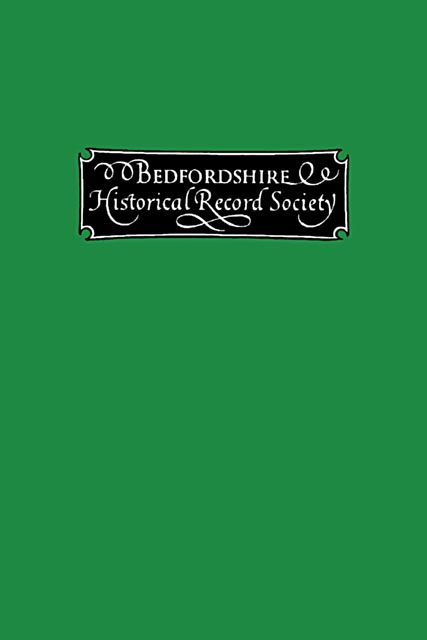Book contents
Ecclesiastical Troubles in Dunstable, c. 1616
Published online by Cambridge University Press: 14 July 2023
Summary
The seventeenth century Englishman was, by force of circumstances, more interested in the minister of his parish than are his descendants in this laxer age. All children born in the place had to be baptized by him; he alone could marry or bury. His right to Easter offerings and customary dues was upheld in Ecclesiastical courts, while statute law enjoined that those subject to tithe should pay their quota without diminution or subtraction. All were ordered to attend church on Sundays and holy days, and not any church, but their parish church. Hence the minister who was slack, or over zealous, who preached doctrine or insisted upon ceremonial unacceptable to his congregation, speedily became unpopular. And as none could legally go their own way, as all Englishmen were ‘ipso facto’ members of the Church of England, when friction arose between a parson and his parishioners, or a section of his parishioners, there was no passive resistance. Dislike was rapidly translated into action.
In some instances annoyance was caused to the minister by making him the subject of crude rimes, by singing indecorous songs late at night near his house, by abuse, or by ill-natured presentments to his Ordinary. The credulous were not averse to spending a few shillings to procure his departure by the aid of sorcery; the more prosaic believed in direct action. The relationship of the average parish priest and his flock in the seventeenth century was frequently inharmonious.
The cause of the trouble at Dunstable cannot be ascertained, but the complainant, who succeeded an irregular minister, suggested that unorthodoxy on the part of the parishioners was accountable. Therefore to drive him “out of ye towne and Countrey” a confederacy was established to give effect to the desires of the factious. The interest of this case, quite apart from the light it throws upon the working of a rigid ecclesiastical system when ill will was manifested in a parish, lies in this confederacy. Here we have a combination of certain parishioners, and to secure their ends, they are credited with subscribing among themselves various sums of money. Now in the early seventeenth century such an action was no strange phenomenon. Two illustrations taken from Bedfordshire may serve. About the same time as the dispute we are considering, there was trouble at Blunham in connection with an approvement made by the Lord of the Manor.
- Type
- Chapter
- Information
- The Publications of the Bedfordshire Historical Record Society , pp. 109 - 127Publisher: Boydell & BrewerFirst published in: 2023



